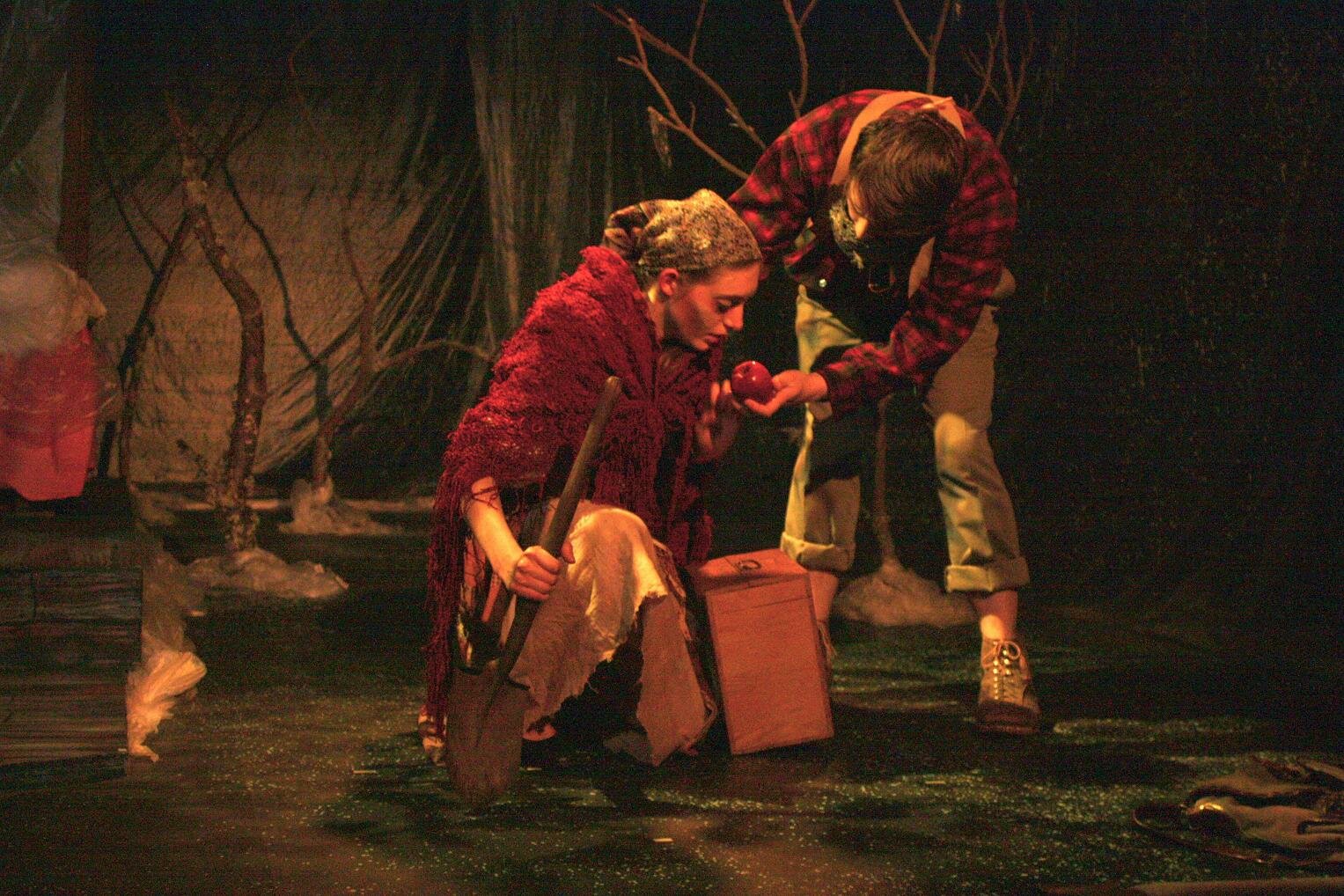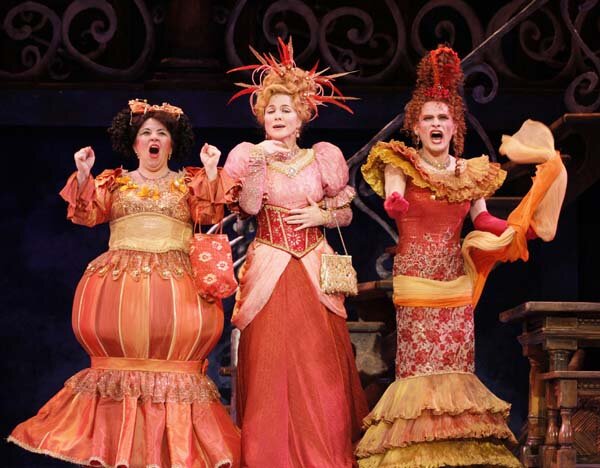
Rocky and Bulwinkle fractured fairy tales, and James Lapine and Stephen Sondheim took them out of their protective woods.
Now Stephanie Timm flips them in the Macha Monkey production of Sweet Nothing: a (grim fairytale). The fulcrum of this flip is the question of what stories characters in fairy tales read. In this world the contentious relationship between gender politics and the fairytale, as told by Disney, takes on fresh immediacy in a well-produced staging at the Annex Theatre through June 23rd (tickets: $15-$18).
Montana Tippett’s set is the highlight of the show, which is not to say that there’s anything wrong with the rest of this fable, but be sure to arrive early to enjoy the view along with the spot-on pre-show music. Light, colorless, translucent plastic sheeting blurs the edges of the space like a wall of fog and wraps the four-poster bed at center stage. Bare branches and saplings suggest a withered and dormant forest. It’s simple, effective, and striking.
Kelsey McCornack’s costumes are also excellent. The three sisters at the center of this story first appear in tattered and smeared chemises, which form the base layer of all their changes. Wedding dresses are assembled from pieces of fabric tied, clipped and stuffed on. Vests and cloaks make the sisters presentable for visitors. The mailman’s postal service logo wants a life beyond this show.
As for the drama itself, Timm establishes the most fundamental rules of this world early on and elaborates on them with integrity over the course of the play. Just as in our own lives, figuring out how the world works is a central obligation for her characters.
The dialogue suggests that Timm follows the Caryl Churchill school in her love of language, indulging in lengthy lists of synonyms and alliteration. In Churchill’s works this verbiage serves as an abstraction that shocks the audience out of complacency while seducing with music. Timm’s language behaves similarly (and may well be a copy or homage), but in the linguistic landscape of the fairytale such language feels almost natural and thus loses some of its political power.
While the language may be lush, the action and characters live firmly in the simple world of fairytales, with two key twists. In this un-romanticized portrayal impoverished peasants aren’t so pretty. The more important twist is that the fairy tale characters escape their grim reality through fairytales—which turn out to be stories of materialistic, hyper-capitalist, relatively current times.
True to Timm’s serpentine form, the younger sisters long for marriage to handsome businessmen. The youngest and sweetest, Violet (Samantha Leeds) longs so deeply that the eldest and wisest—or more accurately, the most perceptive and thus named Iris (Monica Finney)—makes a match for her. Violet goes off across the sea to her happily ever after of purported events and parties and domesticity while her elder siblings remain perpetually starving at home.
The kind middle sister, Lily (Libby Bernard) who is less kind than curious, takes up the mantle of longing while Iris creates games to keep hunger from becoming madness. Lily quickly comes to question Iris’s black-and-white view of things, and the men they encounter test both their views. Jason Sharp, whose occasionally excessive eyebrows deserve their own credit, plays a living double entendre as the Wolf. Quinn Armstrong does fine work as his nemesis, the Woodsboy. Neither character is all that he appears to be.
The simplicity of the storytelling suggests allegory, but Timm balances dialogue peppered with overt and direct statements with pleasantly ambiguous events. Sweet Nothing feels moralistic but avoids spelling out its morals too boldly.
Directing (by Laurel Pilar Garcia) and acting are solid overall, though the sisters don’t escape the pitfalls of adults playing children. Thankfully these moments are fleeting bookends to the performance and Finney, Barnard, and Leeds tend to do fine work through the spine of the play. Leeds is also a bit soft as the Crow, but has clearly given careful attention in her work with movement coach Juliet Waller Pruzan. Joseph Swartz’s sound design is quite good with only a few shocks of canned-feeling sound and a real achievement with the door knocking. The frequent underscoring mostly serves without overwhelming.
Ultimately Sweet Nothing is just that. It’s a lovely evening’s entertainment, a little sticky in the chewing but tasty and a bit dark without being especially heavy.

